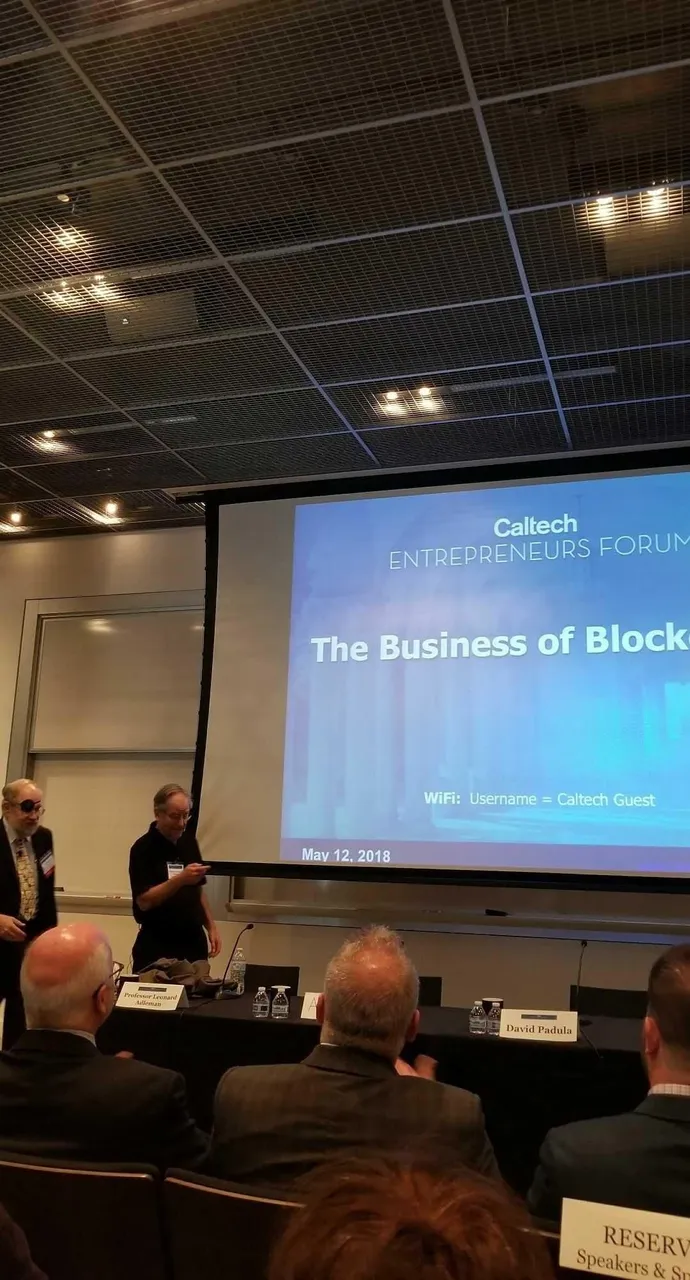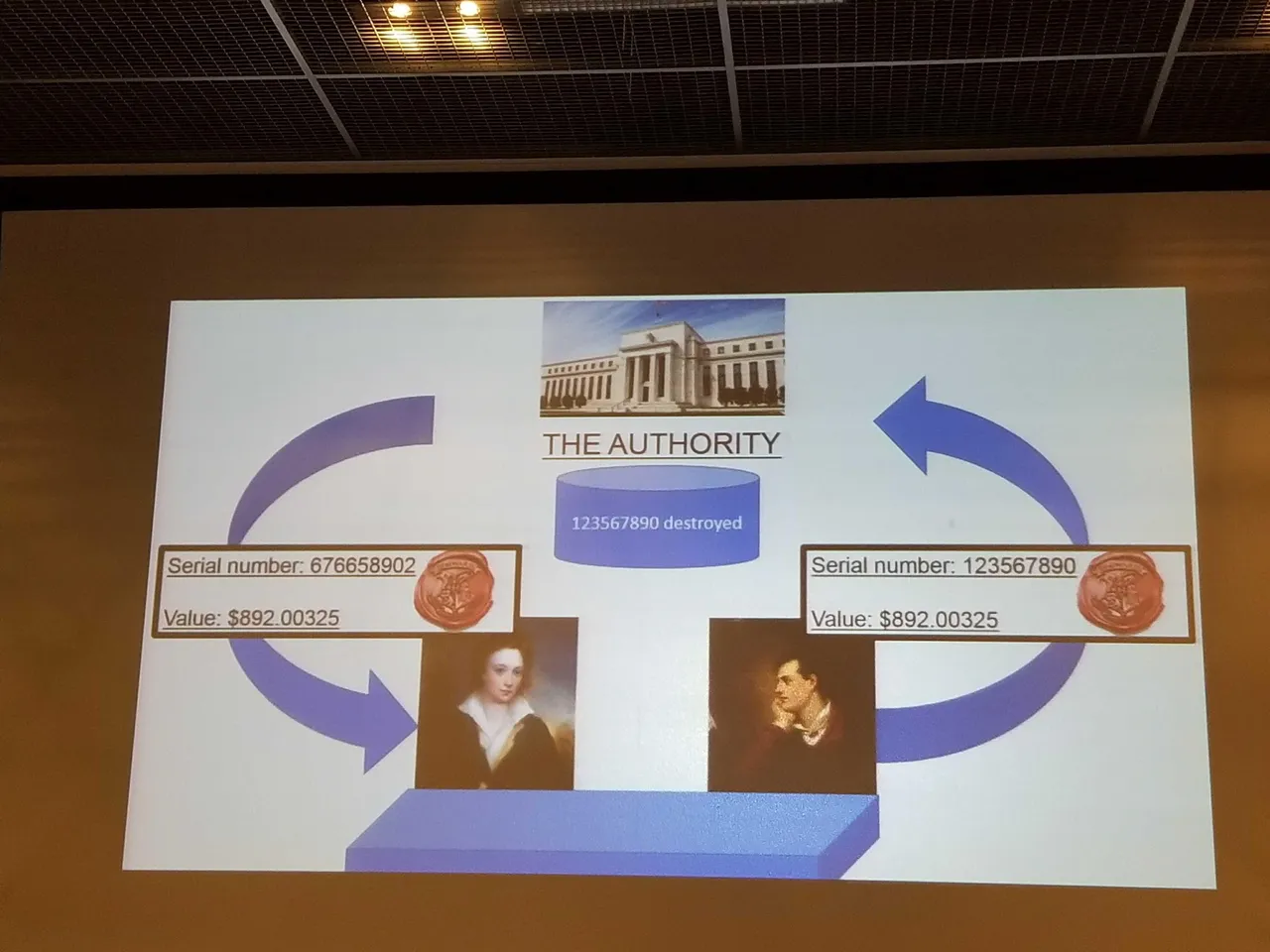
Professor Adleman proposed a new cryptocurrency without using blockchain.
In his presentation, Professor Adleman talked about all the advantages of using cash. Cash is anonymous, no transaction fee, fast, and everyone can use it. However, cash has mass. It cannot travel in distance. In order to transfer money remotely in the Internet era, we use credit card. However, using credit cards reveals our privacy; the merchants need to pay 2% transaction cost and need to wait for days to receive money. Not everyone can use credit cards. Only persons with sufficient financial status can have credit cards.
Bitcoin and other cryptocurrencies are designed to protect the privacy, lower the transaction fee, speed up the transaction process and allow everyone to use. They are designed to replace cash but massless. They can travel in distance. In reality, we find out that Bitcoin and other cryptocurrencies are not as good as cash. They reveal some privacy by leaving marks of public keys. The transaction fees are high and the processes are slow. They are using the blockchain technology and supposed to be decentralised, but the reality is that the big miners are mining over 50% of Bitcoins. This situation undermines the idea of decentralization.
Professor Adleman proposed a new form of cryptocurrency, Aurum. It abandons the usage of blockchain. 3 programs are used to avoid double spending: automatic replacement coordinator, note destroyer, and note creator. It is a cryptocurrency with centralized governance, but centralized governance doesn’t mean centralized process.
When a buyer spends a note, the note id would be checked against the note destroy list, and then added to the destroy list. A new note will be created and sent to the seller. With the centralized governance, double spending can be avoided without blockchain.
The Aurum system would have the advantages of cash, such as privacy, low transaction cost, fast and no financial status required. It would have other advantages such as smart contract, backup note to avoid theft, and micropayments.
